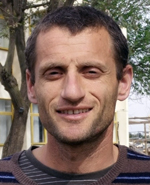By Yedidya Hazani

KIBBUTZ HANNATON, Israel — Can hummus and soccer bridge rivalry? Can joyful music and dancing overpower political differences? Can acceptance of shared values rise out of contradictions in religion, culture, or upbringing? And, is it possible to maintain civic life, apart from political life?
All these questions arise, both formally and informally, as part of the “You Can’t Ignore It” series of meetings and encounters between Hannaton Mechina {a program for high school graduates prior to their IDF service} participants and their peers from the local villages of Kfar Manda (Muslim), Bir El Maksur (Bedouin), Zarzir (Bedouin), and Marar (Druze). The event is organized and coordinated by a team of leaders from the Mechina, with staff input. The program is in its third year.
Why ask these questions, at all? We believe the simple asking of the questions, as well as the discussion around our answers, leads to a space of compassion, from which friendship and understanding may evolve. This year, “You Can’t Ignore It” kicked off on Hannaton on January 28 with a meeting of 200 Bedouin, Jewish, Muslim and Druze youth from the Galilee, including Mechina participants, national service volunteers and high school students.
The focus of the first meeting is always to highlight what all young adults in Israel – regardless of race or religion — have in common. Music and dance are great tools for experiencing this commonality firsthand. Click on this video to watch a number of the participants join together inside the kibbutz community center to dance to the music of Taha Yasin, a musician from Kfar Manda.
In subsequent sessions, after people have gotten to know one another better, there is room for deeper discussions about politics and ethics. In these more heated discussions, neutrality is central. We assign a moderator to keep the group on track and to mind the emotional atmosphere. While the first meeting takes place at Hannaton; later meetings are hosted by one of the other groups in one of the neighboring villages, at a school or community center. No matter where we meet, we’ve learned that everyone must be made to feel at home before they’re willing to be vulnerable in front of a group they may previously perceive as threatening. We create that home-like environment with get-to-know-you ice breakers that promote laughter and general ease.
But what about language? In Israel, language can be an insurmountable barrier in casual settings even when there is a desire for connection. To avoid the potential obstacle of misunderstandings, all our sessions are conducted in two languages, Arabic and Hebrew. There are translators to assist facilitation of every session. Certainly, language barriers still stymy the participants’ free expression, but this way seems to create sympathy and trust among group.
Why is coexistence so important to us? On a programmatic level, it offers us leadership-in-action opportunities for our program participants; ways for them to take what they learn in the classroom and apply it to the greater community. For instance, as a result of the success of last year’s “You Cannot Ignore It” program, our Mechina participants were invited to volunteer in Zarzir, a Bedouin village, to help in an afterschool program. Once a week, they travel to local schools to help with homework and assist with a sports program.
To anyone living in the Galilee, though, coexistence programming provides an avenue of hope, a glimpse at a possible future other than the one we’re constantly exposed to. The media often only shows us the ugly side of our shared reality here – with an emphasis on conflict and violence. Indeed, as the title of this coexistence program implies, we cannot ignore what is happening in our country – and, certainly, not in a pre-army mechina which is preparing its participants for meaningful military service. But, in order to truly promote a democratic Israel – part of the Hannaton Educational Center’s core mission — we feel it’s essential to counter the images our young people see on TV or on the internet with real-life positive interactions. What should guide us, and hopefully, inspire us, are real-life positive encounters, combined with our shared values of humanity and inclusion. As Jamal Tarar, school principal from Kfar Manda, declared at our Hannaton session last month, “We won’t allow the media to determine our outcome. We won’t let those images of hatred control us.”
*
Hazani is general manager and a member of the educational staff of the Hannaton Education Center. This story republished and updated from the website of the Hannaton Educational Center. More about the Center’s mission may be found by clicking here.